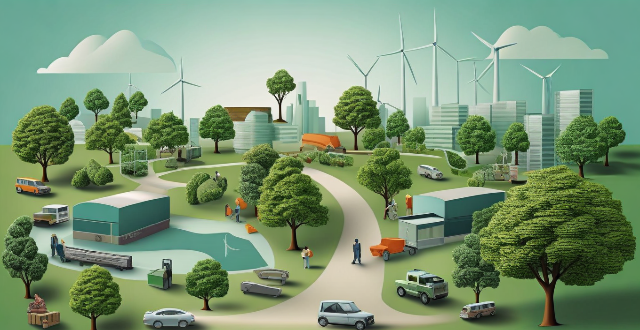The article discusses the economic implications of stringent climate change legislation, which include job creation in renewable energy and green infrastructure sectors, potential increases in energy and food prices, new business opportunities in innovation and carbon trading, and investment in clean technology leading to economic growth. However, there are also short-term transition costs and job displacement issues. Despite these challenges, the long-term benefits such as improved air quality and increased resilience against natural disasters make the implementation of such legislation beneficial for future generations.

Economic Implications of Stringent Climate Change Legislation
Introduction
Climate change is a global issue that requires urgent attention. Governments around the world are enacting legislation to mitigate its effects, but these laws can have significant economic implications. This article will explore the potential economic impacts of stringent climate change legislation.
Potential Economic Impacts
Job Creation
- Renewable Energy Sector: The shift towards renewable energy sources such as solar and wind power could create new jobs in manufacturing, installation, and maintenance.
- Green Infrastructure: Building sustainable infrastructure like public transportation systems and green buildings also creates employment opportunities.
Cost of Living
- Energy Prices: As we move away from fossil fuels, the cost of energy may increase initially, leading to higher prices for consumers.
- Food Security: Climate change can affect crop yields, leading to fluctuations in food prices.
Business Opportunities
- Innovation: Companies that develop innovative solutions to combat climate change can benefit from government incentives and consumer demand.
- Carbon Trading: A carbon market allows companies to trade emission allowances, creating a new revenue stream.
Economic Growth
- Investment: Strict environmental regulations encourage investment in clean technology and sustainable practices.
- Diversification: Countries with diverse economies that include renewable energy sources are less vulnerable to market fluctuations.
Challenges and Trade-offs
Short-term Costs
- Transition Costs: The transition to a low-carbon economy requires upfront investments in research and development.
- Job Displacement: Some industries, particularly those reliant on fossil fuels, may face job losses as they adapt to new regulations.
Long-term Benefits vs. Short-term Sacrifices
- Sustainability: While there may be initial sacrifices, long-term benefits include reduced healthcare costs due to improved air quality and increased resilience against natural disasters.
- Intergenerational Equity: Future generations will inherit a healthier planet and more stable economy if we act now.
Conclusion
Enacting stringent climate change legislation has both positive and negative economic implications. While there are short-term costs associated with transitioning to a low-carbon economy, the long-term benefits outweigh these costs. By prioritizing sustainability, we can create a more resilient and equitable future for all.